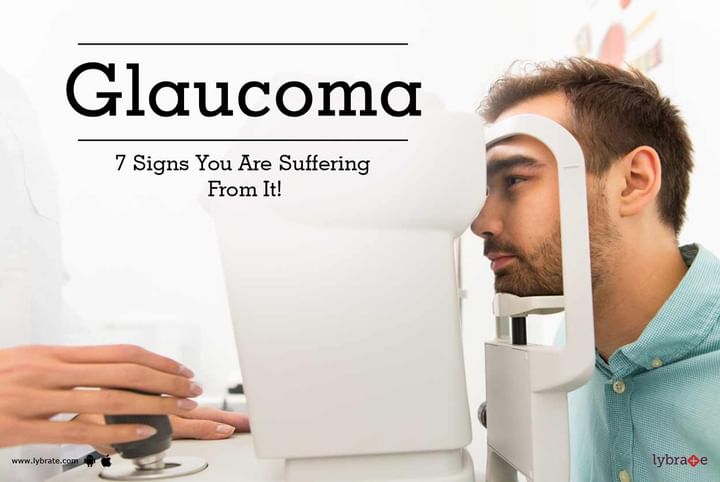Glaucoma - 7 Signs You Are Suffering From It!
Glaucoma is a group of diseases that causes damage to your eye's optic nerve and gets worse over time. The optic nerve is a bundle of millions of nerve fibres which carry visual impulse from the retina at the back of eye to the brain. The increased Eye pressure, called intraocular pressure, can damage the optic nerve and fasten the natural nerve fibre loss. Since nerve cells can't regenerate this damage is permanent and irreversible.
Without treatment, glaucoma can cause total permanent blindness within a few years. Because most people with glaucoma have no early symptoms or pain from this increased pressure, it is important to see your eye doctor regularly so that glaucoma can be diagnosed early and treated before significant functional visual loss occurs.
If you are over age 40 and have a family history of glaucoma, you should have a complete eye exam with an eye doctor every one to two years. If you have any risk factors, you may need to visit your eye doctor more frequently.
What Are the Symptoms of Glaucoma?
For most people, there are usually few or no symptoms of glaucoma. The first sign of glaucoma is often the loss of peripheral or side vision, which can go unnoticed until late in the disease. This is why glaucoma is often called the "Sneak Thief of Vision" or "Silent Thief of Eye Sight".
If you have any of the following symptoms, seek immediate medical care:
- Seeing halos around lights
- Vision loss
- Redness in the eye
- Eye that looks hazy (particularly in infants)
- Nausea or vomiting
- Pain in the eye
- Narrowing of vision (tunnel vision)
Risk Factors
There are several risk factors, which may lead to glaucoma, such as
- Age of the individual
- Ethnicity- African, Caribbean, Hispanics and Asians are at higher risk
- Increased eye pressure or IOP History of glaucoma in family or relatives
- Presence of Myopia or Hyperopia
- Previous eye injuries
- Use of steroids- as injections, tablets, eye or ear drops or ointments or protein supplements for muscle building in gyms or inhalers
- Previous history of anemia
- Individuals conditions affecting blood flow like hypertension, diabetes or high blood sugar, migraine etc are also at risk.
Treatment-
The treatment for glaucoma relies on the nature and seriousness of every case. Generally, glaucoma cannot be totally cured, but it can be controlled. Eye drops, pills, laser strategies, and means of surgery are utilized to maintain and prevent further harm from happening. Talk to your eye doctor to find out if you are at risk of developing glaucoma.



+1.svg)
